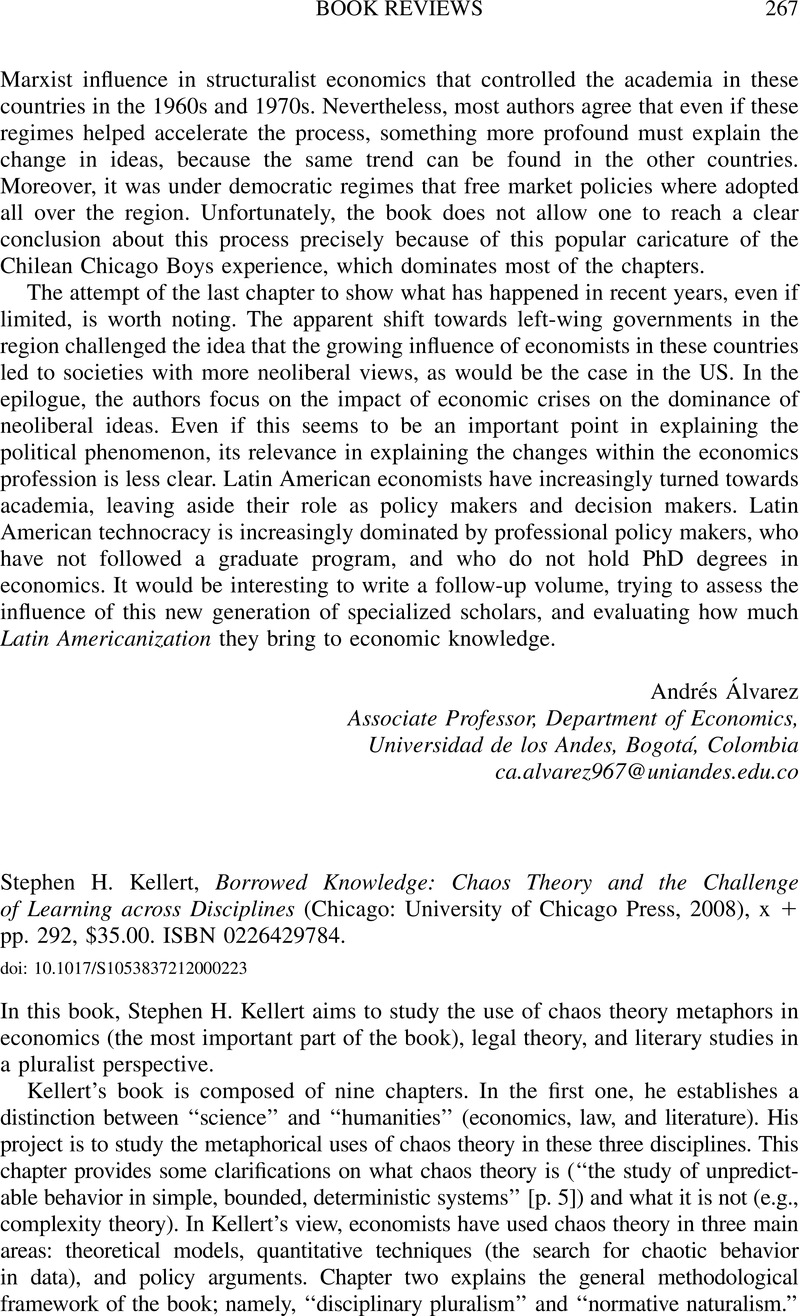No CrossRef data available.
Article contents
Stephen H. Kellert, Borrowed Knowledge: Chaos Theory and the Challenge of Learning across Disciplines (Chicago: University of Chicago Press, 2008), x + pp. 292, $35.00. ISBN 0226429784.
Published online by Cambridge University Press: 07 June 2012
Abstract
An abstract is not available for this content so a preview has been provided. Please use the Get access link above for information on how to access this content.

- Type
- Book Reviews
- Information
- Copyright
- Copyright © The History of Economics Society 2012
References
REFERENCES
Colander, David. 2000. “The Death of Neoclassical Economics.” Journal of the History of Economic Thought 22: 127–143.Google Scholar
Cunningham, Lawrence A. 1994. “From Random Walks to Chaotic Crashes: The Linear Genealogy of the Efficient Capital Market Hypothesis.” George Washington Law Review 62: 546–608.Google Scholar
Davis, John. 2006. “The Turn in Economics: Neoclassical Dominance to Mainstream Pluralism.” Journal of Institutional Economics 2: 1–20.CrossRefGoogle Scholar
Hull, David L. 2008. “Review of Scientific Pluralism by Kellert, Stephen H., Longino, Helen E., and Waters, C. Kenneth (eds.), University of Minnesota Press, 2006.” Notre Dame Philosophical Reviews. http://ndpr.nd.edu/news/23476/?id=12963 (accessed 09/19/2011).Google Scholar
Jovanovic, Franck, and Le Gall, Philippe. 2001. “Does God Practice a Random Walk? The ‘Financial Physics’ of a Nineteenth-Century Forerunner, Jules Regnault.” European Journal of the History of Economic Thought 8: 332–362.CrossRefGoogle Scholar
Mirowski, Philip. 2011. Science-Mart: Privatizing American Science. Cambridge: Harvard University Press.CrossRefGoogle Scholar


